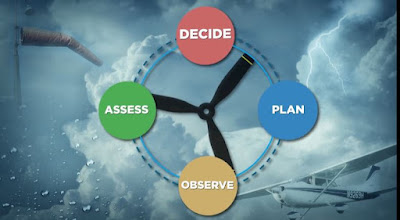 |
| Screen capture from AOPA weather wise video |
Preflight weather planning is one of the most important jobs we do as pilots. It’s the foundation for some of our most critical decisions. But with the sheer amount of weather information available these days, how can we be sure we’re getting what we need? In this short video—the first in a series focused on practical weather flying for pilots—we look at strategies for sorting through the chaff and pinpointing the information that really matters for your upcoming flight.
Weather Wise: Gathering Information Video
From ForeFlight...
What is the legality of the weather briefing for FAR Part 91 operations?
There is ongoing confusion many pilots have about weather briefings. There is not, in fact, such a thing as a "legal weather briefing."
The FARs only require that pilots obtain "all available information" (FAR 91.103). ForeFlight delivers weather, NOTAMs, etc. that help a pilot meet this requirement - especially when obtaining a briefing from the file/brief system.
ForeFlight's weather comes from the National Weather Service / NOAA, which is an approved source of FAA weather.
What pilots typically are concerned about when they discuss a "legal weather briefing" is whether or not they will have some proof or record of their briefing. This is important so that in the event of an incident, they can prove they met the requirements under 91.103. We do keep a record of the briefing you get for 120 days, provided you tap the "Brief" button. If you simply look at METARs and TAFs in the app, such as on the Airports page, we don't keep a record of that. ICAO flight plan briefings are kept by Lockheed Martin Flight Services.
Also, if you are wondering about Qualified Internet Communications Providers (QICP), the Advisory Circular (AC) 00-62, Internet Communications of Aviation Weather and NOTAMs was canceled effective August 15,2013. FAA Flight Standards Service (AFS) no longer requires operators to utilize vendors that are approved QICP.
ForeFlight repackages aviation weather data from various sources including the National Weather Service and Weather Decision Technologies. Our servers continue to meet the previously defined performance criteria established under the QICP program. For more information, please see this BLOG POST.
No comments:
Post a Comment